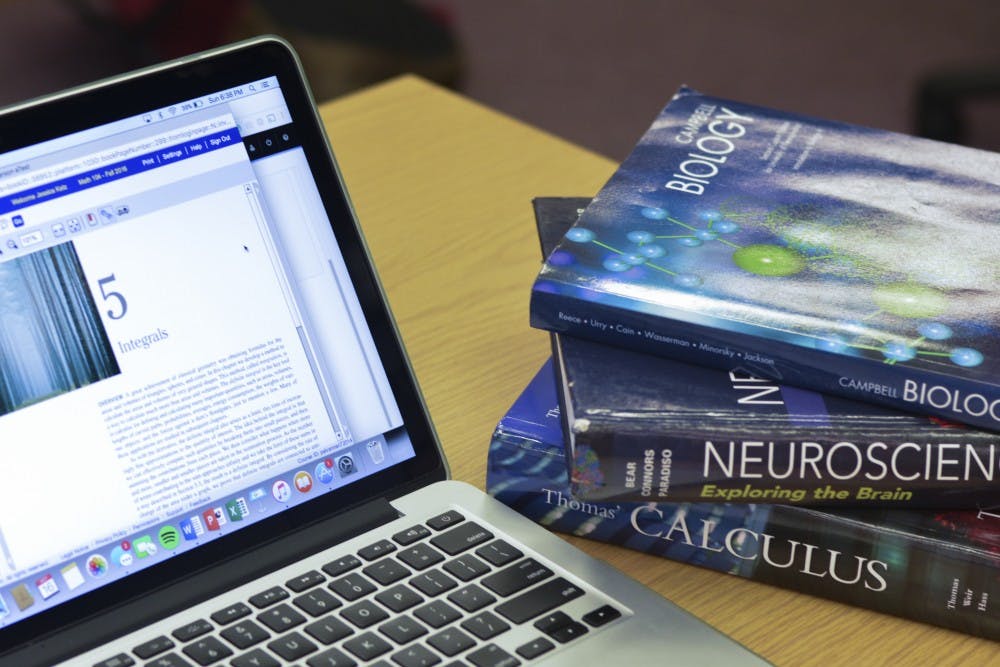
Single-use online access codes for textbooks are making it difficult for students to save money on necessary materials for classes.
Credit: Jess Katz , Jess KatzResourceful students find plenty of ways to cut down on textbook costs. But when professors require textbooks with single-use digital access codes, no level of creativity can save them from paying high prices.
These serial numbers allow students to register for accounts with various online learning platforms, which may be required in order to complete online quizzes or homework assignments for a class. Once a code is used, it cannot be reused by another student.
In Sept. 2016, the Student Public Interest Research Groups (PIRGs) — independent statewide student organizations that work on issues like environmental protection, consumer protection and homelessness — published a report called “Access Denied” that called these access codes the “new, dangerous face of the textbook monopoly.”
The report found that 20 percent of classes at private, four-year colleges require these codes and only 28 percent of access codes are offered at bookstores in an unbundled form. If codes are only offered in bundles, students must buy the code with other materials.
The Student PIRGs found that the average cost of an unbundled access code was $100.24 when purchased at institutional bookstores.
Since these codes cannot be reused, all traditional cost-saving measures are eliminated.
The Penn Bookstore advertises its rental option as an alternative that can save students up to 75 percent of the cost of a new textbook. The bookstore also offers more than 80 percent of textbooks for rent as well as used books.
While the bookstore offers unbundled codes, the unbundled codes are not always significantly less expensive — the access code required for Intro to American Politics costs $80 when bought separately from the bundled loose-leaf textbook and access code, which costs $107.
Access codes also eliminate the option for students to buy used books online through the Penn Book Bazaar or various Facebook groups. On the University of Pennsylvania Facebook network, groups such as “Textbook Exchange” and “Free and For Sale” have hundreds of listings.
Wharton and Engineering freshman Alejandro Rodriguez has been assigned online textbooks accessible through these codes, but he hasn’t bought them because they aren’t required to complete graded assignments.
“They’re required but I don’t buy them,” he said. “I’ve been able to find online PDFs.”
The Daily Pennsylvanian is an independent, student-run newspaper. Please consider making a donation to support the coverage that shapes the University. Your generosity ensures a future of strong journalism at Penn.
Donate



